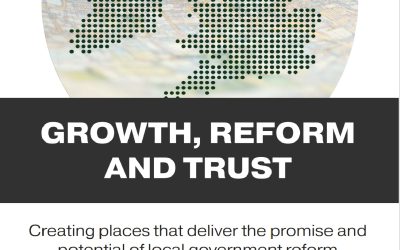How councils can make the most of the Procurement Act 2023
By Gary Styles, Founder and Chief Executive, Zellar
The Procurement Act 2023, which took effect in February 2025, marks a significant shift in how UK councils approach procurement. With a strong focus on sustainability, social value, and SME inclusion, the Act presents a valuable opportunity for local authorities to advance Net Zero goals, bolster local economies, and drive growth in green industries.
How to maximise the opportunities of the Procurement Act
At the District Councils’ Network Annual Conference 2025, Zellar hosted a session where council leaders and local authorities explored how to maximise the opportunities the Procurement Act presents for advancing Net Zero goals and building a thriving green economy. The discussion emphasised the importance of using procurement not just as a compliance exercise, but as a powerful tool to drive sustainable growth and create lasting environmental impact and social value.
A key mechanism within the Act is to support local SMEs through disaggregation—the practice of breaking large contracts into smaller, more accessible opportunities. By structuring procurement in this way, councils can level the playing field, enabling more SMEs to compete for and win public contracts.
 For this to succeed, SMEs must be properly supported in engaging with the process. Many participants expressed concerns that SMEs will struggle with the Act’s sustainability requirements due to a lack of resources, expertise, or clear guidance. To address this challenge, it was agreed that councils can play a pivotal role by providing accessible, simple digital tools that guide SMEs through emissions tracking and sustainability reporting
For this to succeed, SMEs must be properly supported in engaging with the process. Many participants expressed concerns that SMEs will struggle with the Act’s sustainability requirements due to a lack of resources, expertise, or clear guidance. To address this challenge, it was agreed that councils can play a pivotal role by providing accessible, simple digital tools that guide SMEs through emissions tracking and sustainability reporting
Reducing complexity through consistent standards and collaboration
One of the key barriers is the variation in sustainability requirements across different councils. With each authority setting its own criteria, SMEs bidding across multiple regions face unnecessary complexity. While councils must remain autonomous and able to reflect local priorities, aligning headline sustainability standards would simplify the process, reduce administrative burdens, and make it easier for businesses of all sizes to engage in public sector work.
The consensus was clear: collaboration is key. Aligning headline sustainability standards across councils would remove barriers for SMEs, while a tiered approach to sustainability expectations could accommodate businesses at different stages of their sustainability journey. This flexibility would support progress without creating unnecessary roadblocks. Most importantly, a coordinated approach would strengthen local green industries, creating jobs and fostering long-term economic resilience.
A catalyst for growth
Beyond reducing complexity, the Procurement Act itself acts as a catalyst for green economic growth. As SMEs adapt to meet new sustainability requirements, they will need to invest in greener solutions—whether that’s electric vehicles, renewable energy, or more efficient operations. This directly drives demand for local green industries such as EV infrastructure, solar panels, energy efficiency upgrades, and sustainability consulting. Clear, consistent sustainability expectations across councils would further accelerate this shift, making green investment not just beneficial, but essential for SMEs looking to secure public contracts. This, in turn, fuels job creation, stimulates innovation, and strengthens the resilience of local economies.
The debate: mandatory vs. voluntary sustainability disclosure
A key question raised during our discussions at the DCN conference was whether emissions and sustainability action disclosure should be a mandatory requirement for suppliers. Many in the room felt that full transparency is crucial for councils to accurately measure their supply chain impact and meet ambitious Net Zero targets. Beyond simply meeting compliance requirements, this transparency could also incentivise businesses to adopt greener practices, driving innovation and creating new opportunities within the low-carbon economy.
Creating a framework for lasting change
Transitioning to a greener, more sustainable procurement model is not without its challenges, but the Procurement Act 2023 provides a framework for meaningful progress. With thoughtful implementation and a commitment to collaboration and consistency, councils can drive real change—helping suppliers, communities, and local economies thrive in a greener future.
By ensuring an inclusive sustainability transition, councils can support SMEs, stimulate local green industries, and drive long-term economic growth. Standardising sustainability requirements and providing clear guidance will not only help businesses comply but will also strengthen the role of public procurement as a tool for achieving Net Zero and delivering social value.
This blog is written by Zellar, a digital platform for sustainability and carbon reduction. Zellar is a partner of DCN. To find out more about how Zellar can help you track and reduce your carbon emissions and implement sustainable procurement, visit www.zellar.com


![DCN Conference 2025 [96dpi]-69](https://www.districtcouncils.info/wp-content/uploads/DCN-Conference-2025-96dpi-69-e1743153388694.jpg)


